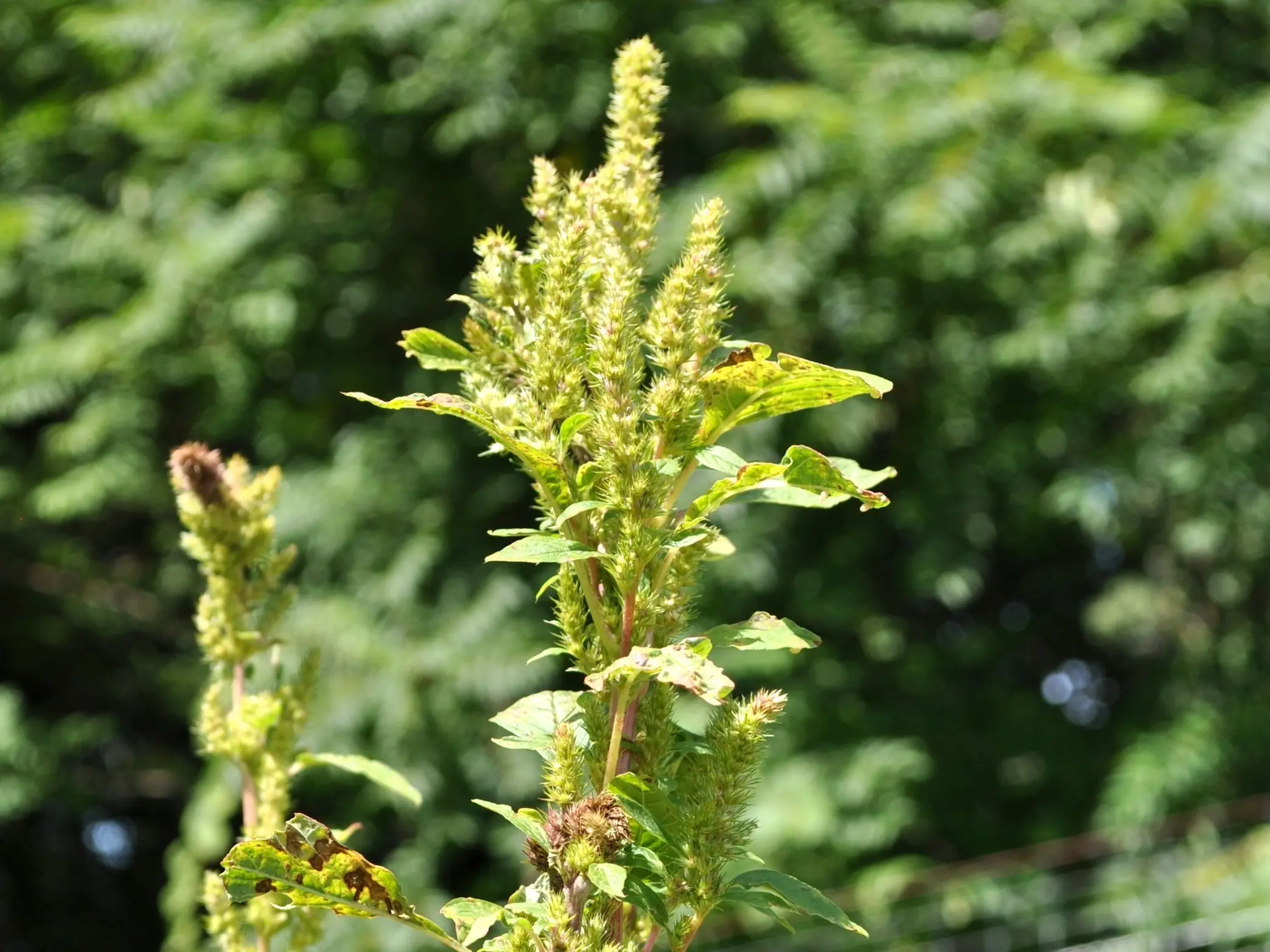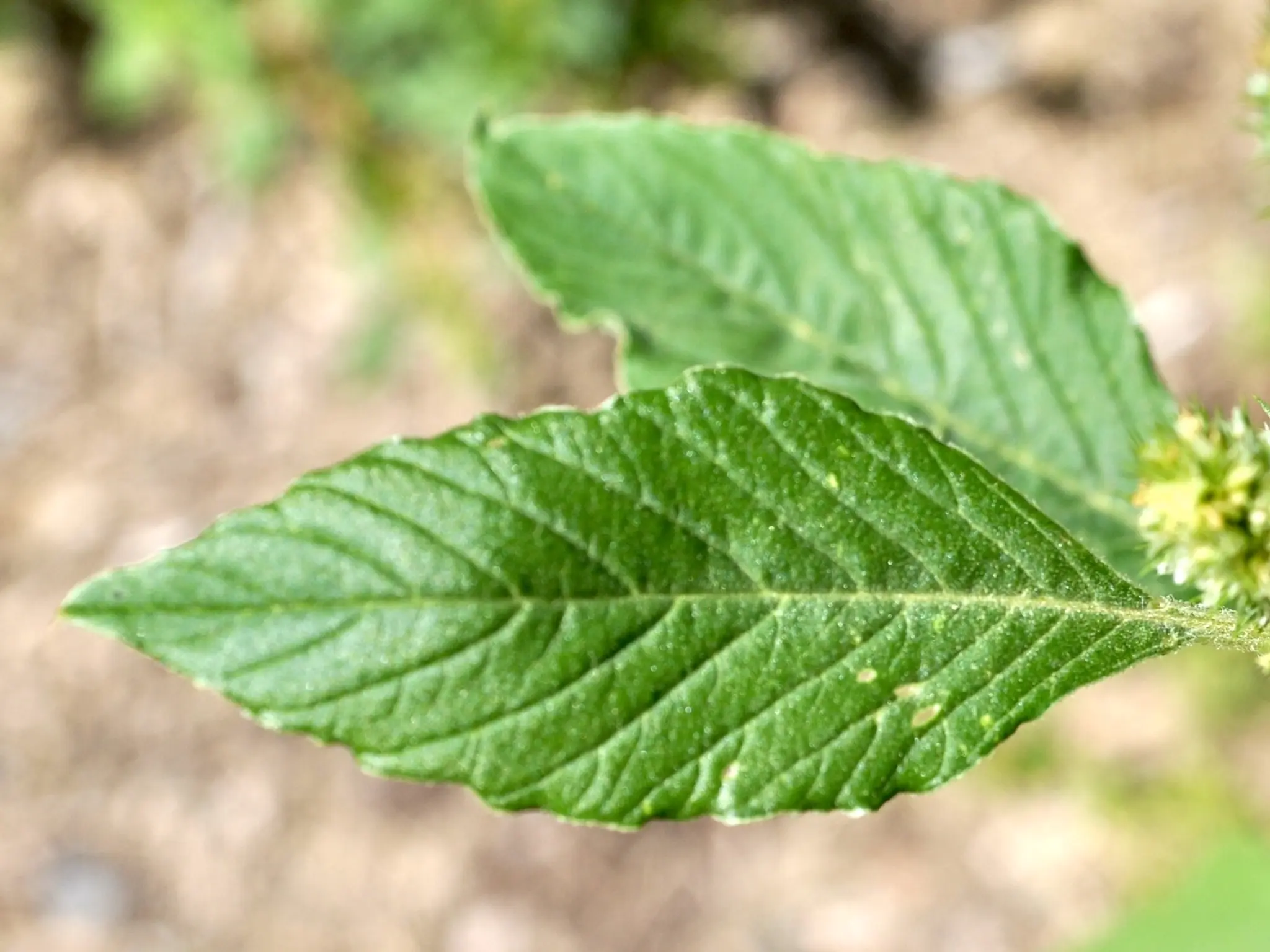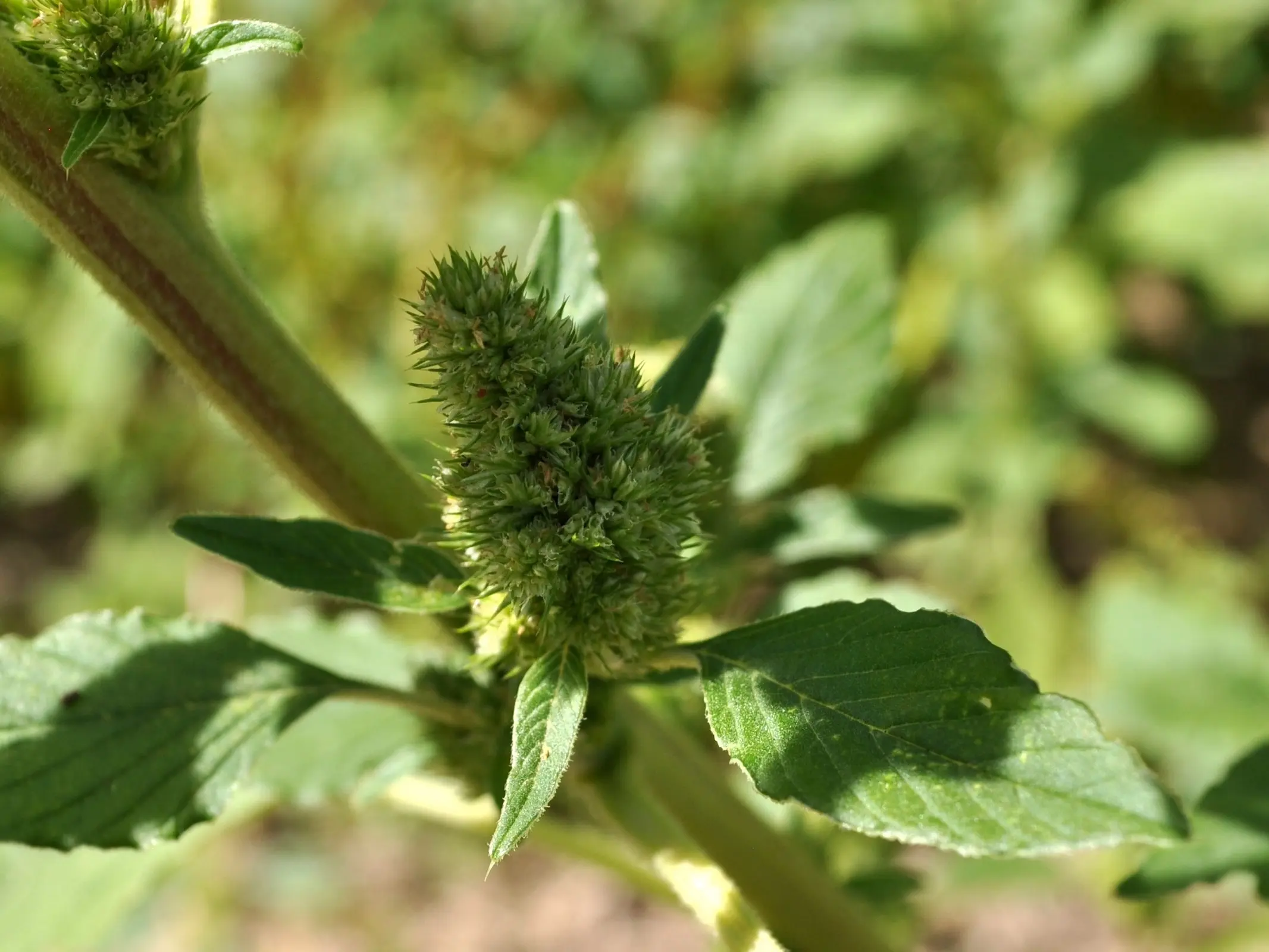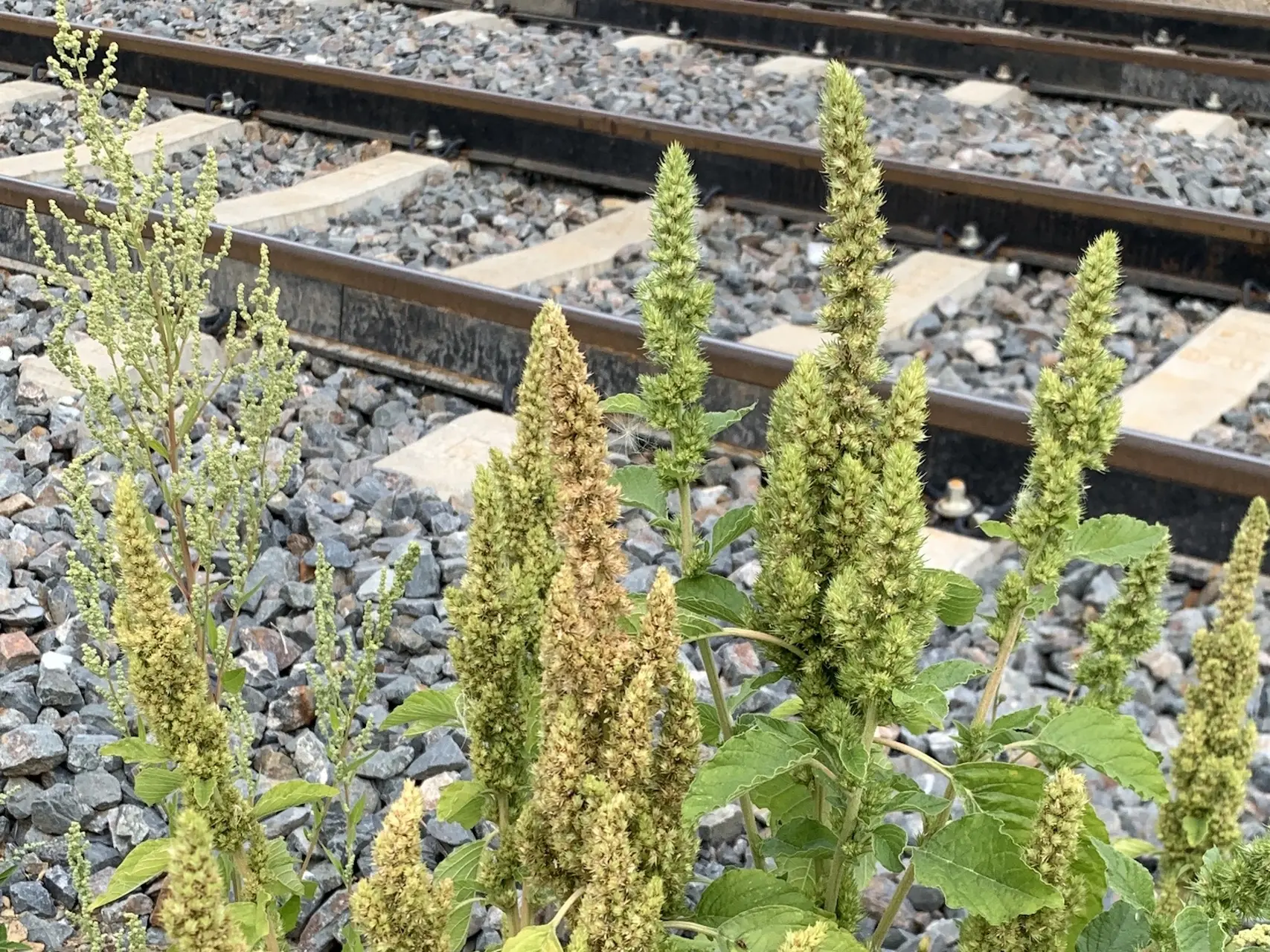
Names
Amaranthus retroflexus, amaranth
Description
Annual that grows 30-150 cm. Stem is red and usually hairy with many branches. Leaves are oval and alternate. Flowers greenish and grow in dense bracts. Fruit is a small, shiny, black seed.

Concern level
Only during drought conditions, unpalatable. Can be incorporated into hay.
Toxic Parts
Leaves and stems.

Symptoms
Tremors, lack of coordination, abortion of fetus in pregnant mares, knuckling of fetlock joints, coma, death.
Danger
Contains oxalates and nitrates which increase potassium levels, and cause kidney failure. Can be fatal.

More Information
*It should be noted that we are not veterinarians. This information is written specifically for horses and should be used for reference purposes only. If you think your horse has eaten something toxic call your vet right away.